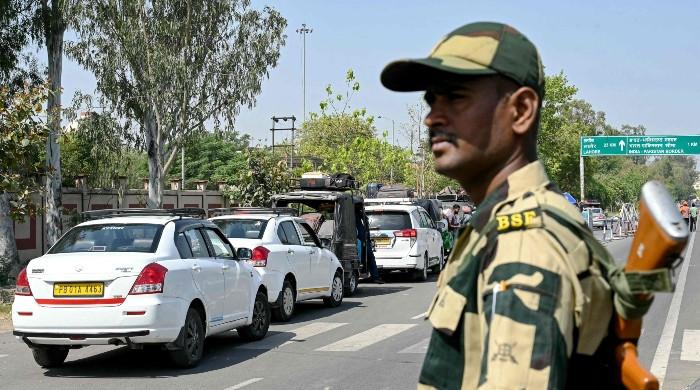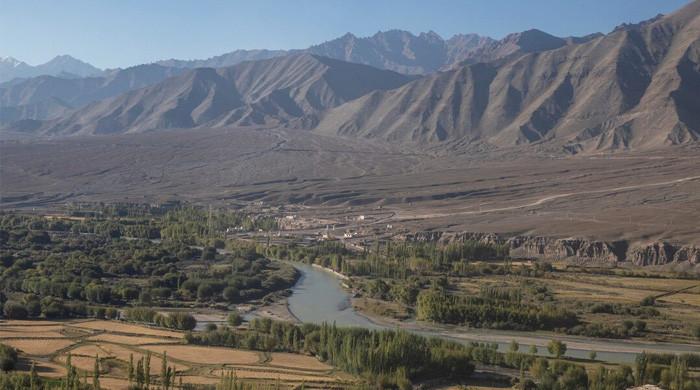Panama papers: A minority view accepted by the majority
The Court is bent towards dispensing complete justice regardless of the procedural requirements
November 29, 2017
The Panama papers, after attaining finality, have set a dangerous precedent for times to come, as in this case the minority view was endorsement by the majority.
The bench, which disqualified Nawaz Sharif from office, laid enormous stress on the issue of dishonesty. Interestingly, that was the essence and the main argument of the two judges - Justice Asif Saeed Khan Khosa and Justice Gulzar Ahmed - who wrote dissenting notes. While in April the split between the opinions of the five judges was clear. The verdict in the review petition that came in November merged the minority and majority view, making it a troubling combination.
The initial minority judgment, penned by two judges, delved into the concept of dishonesty, using a speech delivered by Nawaz Sharif in the National Assembly as well as various contradicting media interviews given by him and his family to drive home their point. For them, Sharif was no longer ‘sadiq’ and/or ‘ameen’. But the other three judges ordered the formation of a Joint Investigation Team to probe into evidence provided by the former prime minister during the course of proceedings, and to consider any other information that may come across during the process.
The minority view, especially that of Justice Khosa, opined that the Supreme Court had the unbridled power to interfere in matters which state institutions refuse to act on.
Little till now was known about Shairf’s properties in London, Dubai and Saudi Arabia or about the Qatar connection. When these revelations were made in the Court, they were treated as concealment of assets, which led the judges to slap the charge of dishonesty on the prime minister. The verdict in the review petition stated the following:
‘But to our dismay and disappointment the petitioner has not been fair and forthright in answering any of the queries made during the course of hearing. He never came forth with the whole truth. He tried to fool the people inside and outside the Parliament. He even tried to fool the Court without realizing that “you can fool all the people for some of the time, some of the people all the time but you cannot fool all the people all the time”.’
If the premier can be sent home due to dishonesty, which the court established on the basis of several factors, then any parliamentarian can be sent packing at any time.
That said, Justice Khosa should however be commended for the way he handled the Hudaibiya Paper Mills case. A National Accountability Bureau reference no.5/2000 was earlier quashed by the Lahore High Court on a technical point. Thereon, the NAB refused to file an appeal to revive it. Khosa could have used his platform to criticize the NAB chairman but instead he suggested an alternative, namely the formation of an Implementation Bench of the Supreme Court led by the Chief Justice.
As for the minority view that prevailed, this action has given a whole new dimension to the interpretation of Article 62/63 by allowing the court to adjudicate on the basis of disputed facts.
Justice Khosa’s following observation reflects the true essence of the minority view: -
“If this Court stops short of attending to the issue merely because it involves some disputed or intricate questions of fact then the message being sent would be that if a powerful and experienced Prime Minister of the country appoints his loyalists as heads of all the relevant institutions in the country, which can inquire into or investigate the allegations of corruption, then a brazen blocking of such inquiry or investigation by such loyalists would practically render the Prime Minister immune from accountability and that surely would be nothing short of a disaster.
It is said that however high you may be, the law is above you. It is in such spirit of democracy, accountability and rule of law that this Court would not give a Prime Minister/Chief Executive of the Federation a field day merely because no other remedy is available or practicable to inquire into the allegations of corruption, etc. levelled against him or where such inquiry involves ascertainment of some facts.”
The above paragraphs reveal that the Court is bent towards dispensing complete justice regardless of the procedural requirements and even if they preclude it from doing so.
- Pansota is an advocate High Court practicing in Lahore. He tweets @pansota1
Note: The views expressed are those of the author, and do not necessarily reflect the official policy or position of Geo News or the Jang Group.











